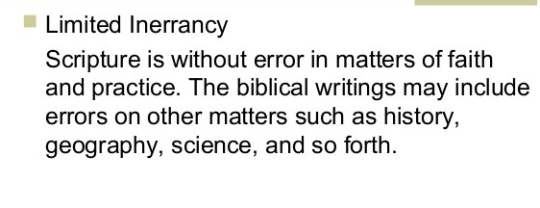SavedByGrace
Well-Known Member
2 Timothy 3:16
All Scripture is given by inspiration of God, and is profitable for doctrine, for reproof, for correction, for instruction in righteousness
If the 66 Books of the Holy Bible are in any way limited in Inerrancy then it cannot be used to "correct" or "instruct" or "reprove" or "teaching", as it will have errors itself. Further if the Bible in the Original Autographs are not completely Inerrant, then God is guilty of being a false witness as His Word is fallible and cannot be completely trusted. This is impossible.
All Scripture is given by inspiration of God, and is profitable for doctrine, for reproof, for correction, for instruction in righteousness
If the 66 Books of the Holy Bible are in any way limited in Inerrancy then it cannot be used to "correct" or "instruct" or "reprove" or "teaching", as it will have errors itself. Further if the Bible in the Original Autographs are not completely Inerrant, then God is guilty of being a false witness as His Word is fallible and cannot be completely trusted. This is impossible.

